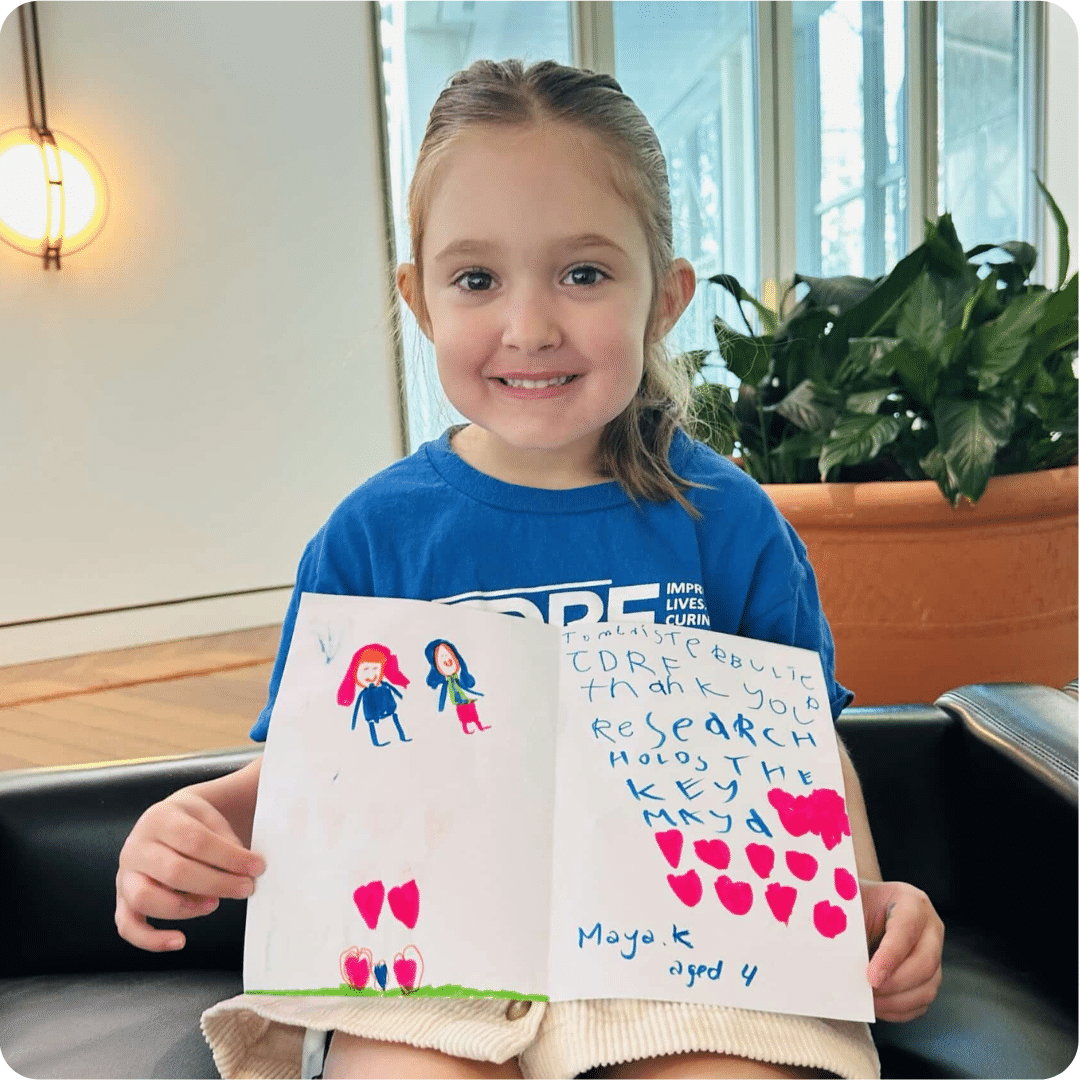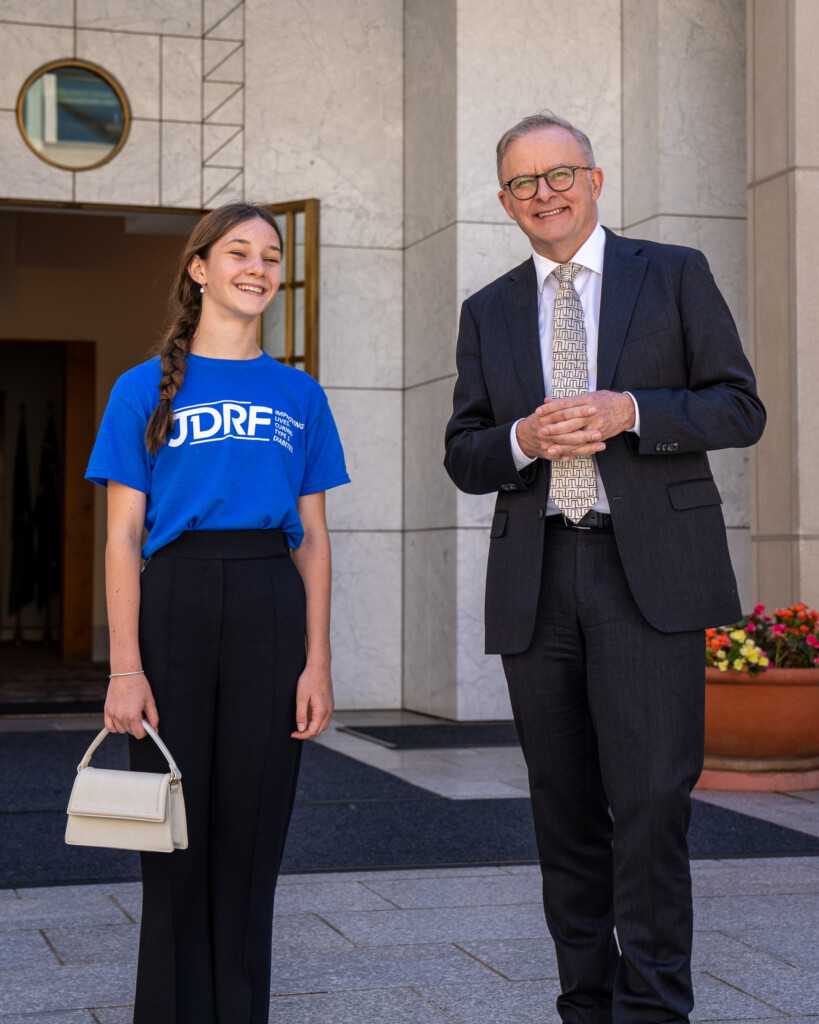Our advocacy success: securing funding for type 1 diabetes research

On 25th November 2024, the Government announced $50.1 million in funding for JDRF Australia’s Type 1 Diabetes Clinical Research Network (T1DCRN).
The commitment was made by Minister for Health and Aged Care, Hon Mark Butler MP, at our Kids in the House event, where he was joined by over 100 kids who live with T1D at Parliament House.
This was met with bipartisan support, with Shadow Minister for Health and Aged Care, Senator The Hon Anne Ruston, confirming a matched election commitment.
Here’s a snippet from the day, including Mark Butler’s speech:
This was a monumental day for JDRF Australia and T1D research, and was only possible thanks to the amazing efforts of JDRF advocates, who had been campaigning for this outcome for more than 12 months.
The T1DCRN
JDRF’s T1DCRN is a highly successful and impactful research network that has driven countless research breakthroughs since it began more than a decade ago. Thanks to ongoing bipartisan support, it has become a key driver of T1D research in Australia, and it’s a vital part of the process as we move towards our vision of a world without T1D.
The T1DCRN’s achievements at a glance:
- $65m invested in Australian research
- 83 projects funded
- 450 researchers supported
- 10,000 people participating in clinical trials or studies
- 2x the number of clinical trials and studies
- 22 host institutions across Australia
How we got here: Research Holds the Key
The previously committed funding for the T1DCRN was about to run out, as it had all been invested in research. We needed more funding to make sure the projects already underway could keep going and reach their goals, so we can keep funding new projects and uncover exciting new breakthroughs.
As a result, we launched our Research Holds The Key campaign, asking the Government for a further $50m.
This campaign was led by amazing advocates all around the country, who met with their local members of parliament to talk about life with T1D and how important research is.
What will the funding make possible next?
Research is the only solution for a different future and is needed to unlock new understandings of how T1D develops and how it can be prevented, treated and cured.
The $50m will support research into three key areas needed to transform T1D, including:
Prevention
We want to build on the progress of existing prevention research, such as expanding our understanding of which environmental exposures can trigger the onset of T1D, rolling out a general population screening program to ensure every Australian child at risk of developing T1D is detected before symptoms begin, and developing therapies that can stop T1D in its tracks.
Precision
We will invest in precision medicine research to create a future where we can provide the right treatment to the right person at the right time. This would mean moving away from a ‘one size fits all’ approach, so everyone with T1D can have access to the best health care.
Progress
We will not stop until we find a cure, and that means pushing new therapies through clinical trials, looking at exciting research areas like stem cells, and providing career support to the best and brightest T1D researchers to keep them in the field.
What it means to the community:
JDRF advocate Giselle, who has been a key voice in JDRF’s Research Holds The Key campaign, said:
Thank you so much to Anthony Albanese and Mark Butler for listening to our stories and supporting us. Knowing that more type 1 diabetes research can happen gives me so much hope for a better future and a life without type 1 diabetes.

Interested in becoming an advocate?
Learn more about how research holds the key at the below videos:
Meet Dr Kirstine Bell, Principal Research Fellow, Charles Perkins Centre, University of Sydney, and lead of the Australian Type 1 Diabetes National Screening Pilot, and JDRF advocate Giselle, 14, who lives with T1D.
Dr Bell and Giselle talk about the future of T1D research, JDRF’s T1D Clinical Research Network (T1DCRN) and the need for ongoing support from the Federal Government, and the importance of a national T1D screening program.
Meet Professor Ranjeny Thomas, Professor of Rheumatology at the University of Queensland’s Frazer Institute, and JDRF advocate Zeph, 11, who lives with T1D.
They discuss upcoming breakthroughs in T1D research and the critical role that research plays in finding cures for over 130,000 Australians.
Meet Professor Simon Barry, a Professorial Research Fellow at the University of Adelaide, and JDRF advocate, Ethan, 13, who lives with T1D.
They provide insights into the cutting-edge technology being utilised in our labs, and the pivotal role of JDRF’s T1D Clinical Research Network (T1DCRN) in advancing important breakthroughs.
